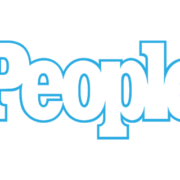15 Health Habits That Actually Optimize Your Immunity, According To Experts
Introduction
In today’s world, maintaining a strong immune system is more important than ever. With various environmental stressors and health challenges, adopting healthy habits can significantly boost your immunity and overall well-being. We’ve compiled a list of 15 evidence-based health habits recommended by experts that can help optimize your immune system.

Prioritize your immune health with evidence-based health habits.
- Eat a Balanced Diet: Include a variety of fruits, vegetables, whole grains, lean proteins, and healthy fats in your diet to ensure you get essential nutrients that support immune function.
- Stay Hydrated: Drink plenty of water throughout the day to keep your body hydrated and facilitate optimal immune system function.
- Get Adequate Sleep: Aim for 7-9 hours of quality sleep each night to allow your body to rest and repair, crucial for a robust immune response.
- Manage Stress: Practice stress-reducing techniques such as meditation, deep breathing exercises, yoga, or hobbies that promote relaxation.
- Exercise Regularly: Engage in moderate physical activity most days of the week to boost circulation, reduce inflammation, and enhance immune function.
- Maintain a Healthy Weight: Strive to achieve and maintain a healthy weight through balanced nutrition and regular exercise, as obesity can weaken the immune system.
- Limit Alcohol Consumption: Excessive alcohol intake can suppress immune function, so moderate your alcohol consumption for optimal health.
- Quit Smoking: Smoking weakens the immune system and increases susceptibility to infections, making quitting an essential step for immune optimization.
- Practice Good Hygiene: Wash your hands frequently with soap and water, cover your mouth when coughing or sneezing, and avoid close contact with sick individuals to prevent infections.
- Take Immune-Boosting Supplements: Consider supplements like vitamin C, vitamin D, zinc, and probiotics after consulting with a healthcare professional.
- Prioritize Gut Health: Consume probiotic-rich foods like yogurt, kefir, sauerkraut, and kimchi to support a healthy gut microbiome, which plays a crucial role in immune function.
- Stay Vaccinated: Keep up to date with recommended vaccinations, including annual flu shots and other vaccines recommended by healthcare providers.
- Avoid Excessive Sugar: Limit intake of sugary foods and beverages, as excess sugar can impair immune cell function and increase inflammation.
- Get Regular Health Check-ups: Schedule routine check-ups with your healthcare provider to monitor your overall health and address any underlying issues promptly.
- Practice Mindfulness: Incorporate mindfulness practices such as gratitude journaling, visualization, or positive affirmations to promote mental well-being, which in turn supports immune health.
Conclusion
In conclusion, prioritizing your immune health through evidence-based health habits is crucial in today’s world. By adopting a balanced diet, staying hydrated, getting adequate sleep, managing stress, and engaging in regular exercise, you can significantly boost your immunity and overall well-being. Additionally, maintaining a healthy weight, limiting alcohol consumption, quitting smoking, practicing good hygiene, and taking immune-boosting supplements are essential steps for immune optimization. Prioritizing gut health, staying vaccinated, avoiding excessive sugar, getting regular health check-ups, and practicing mindfulness also play vital roles in supporting your immune system. Incorporating these habits into your daily life can help you maintain a strong immune system, better cope with environmental stressors and health challenges, and promote long-term wellness.
FAQs
1.What role does diet play in immune optimization?
A balanced diet rich in fruits, vegetables, whole grains, and lean proteins provides essential nutrients that support immune function. Antioxidants, vitamins, and minerals from food play a crucial role in boosting immunity.
2.Is there a specific type of exercise that is best for immune health?
Moderate-intensity exercises like brisk walking, cycling, or swimming are beneficial for immune health. Regular physical activity helps reduce inflammation, improve circulation, and enhance immune cell function.
3.Can supplements alone boost immunity?
While supplements like vitamin C, vitamin D, zinc, and probiotics can support immune function, they are most effective when combined with a healthy lifestyle. It’s essential to consult healthcare professionals before starting any supplements.
4.How does sleep impact immune health?
Quality sleep is vital for immune function as it allows the body to repair and regenerate. Lack of sleep can weaken the immune system and increase susceptibility to infections.
5.Are there specific stress-reducing techniques that help boost immunity?
Stress-reducing techniques such as meditation, deep breathing exercises, yoga, and mindfulness practices can help lower stress hormones and support immune function.
6.Can excessive alcohol consumption weaken the immune system?
Yes, excessive alcohol intake can suppress immune function and make individuals more susceptible to infections. Moderation is key to maintaining a healthy immune system.
7.What role does gut health play in immunity?
A healthy gut microbiome is essential for immune function as it houses a significant portion of immune cells. Consuming probiotic-rich foods and maintaining gut health through balanced nutrition is beneficial for immunity.
8.Is there a connection between obesity and immune function?
Yes, obesity can weaken the immune system and increase inflammation, making individuals more prone to infections and other health issues. Maintaining a healthy weight through diet and exercise is important for immune health.
9.Do vaccines help boost immunity?
Vaccines are crucial for boosting immunity by providing protection against specific infections. Staying up to date with recommended vaccinations, including flu shots, helps strengthen the immune system.
10.What are some signs of a weakened immune system?
Signs of a weakened immune system include frequent infections, slow wound healing, fatigue, digestive issues, and allergies. Consulting healthcare professionals for persistent symptoms is recommended.
By incorporating these 15 health habits into your lifestyle, you can optimize your immune system’s ability to defend against infections and maintain optimal health. Remember to consult with healthcare professionals for personalized advice and guidance based on your individual health needs.
Like most of us, I’m doing my damnedest to stay healthy right now. I’m social distancing and washing my hands almost obsessively. I’m trying to eat as many vegetables as possible to ensure I’m getting health-supporting nutrients that I’m not exactly taking in via all the stress baking.
It’s also not surprising that I’ve been bombarded with news over the past few months about how to bolster my immune system. I can’t scroll through my Instagram feed without seeing some influencer bragging about an immune-boosting smoothie or a supplement company promoting pills with elderberry and citrus.
Time-out, though. Immunity has a PR problem right now. The whole idea that you can power up your immunity in some quick-and-dirty way overnight (and, you know, avoid a cold or flu…or COVID-19) isn’t actually how it works.

















